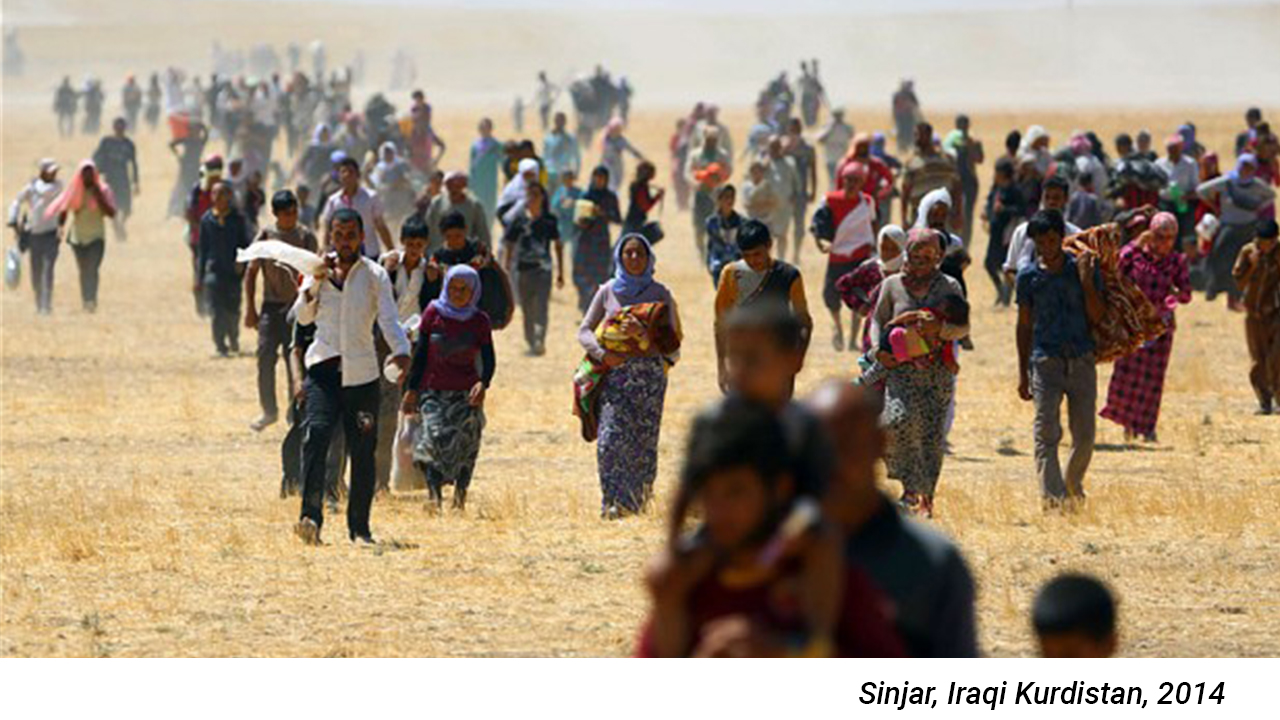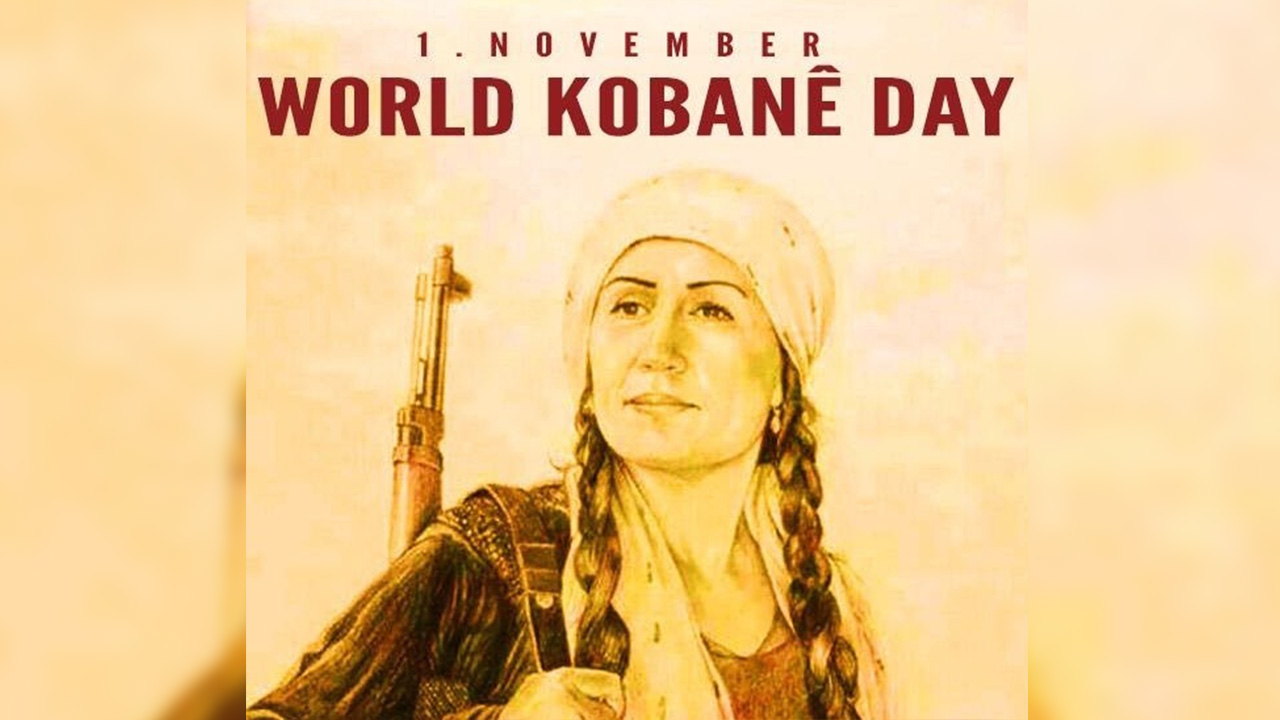Robin Fleming
Wednesday, 1 November marked 9 years since the international community called for solidarity with Kobani (Kobanê). Kobani is a Kurdish-majority city in North and East Syria (NES) which rose to fame in 2014 when local fighters, led by Kurdish women, fought against the Islamic State (ISIS) who had besieged the town.
Seeing the brutality of ISIS and the sacrifice of the Women’s Protection Units (YPJ) and the People’s Protection Units (YPG) who lost hundreds of their members during the siege of Kobani, people rose up and organised demonstrations across the world to display their solidarity with the YPJ and YPG.
The EU-Turkey Civic Commission (EUTCC) began a campaign called “Global Rally against ISIS – for Kobanê – for Humanity”. This massive reaction in support of the fighters of Kobani was the beginning of what we now commemorate as ‘World Kobanê Day’ on 1 November.

In many ways Syrian and Kurdish fighters were left alone in the fight against ISIS. The Peshmerga forces connected to the Kurdistan Democratic Party (KDP) withdrew when ISIS began a major assault against the Yazidi population of Sinjar (Şengal) in Iraqi Kurdistan in August of 2014. After the Peshmergas’ retreat, Yazidis were subjected to a brutal massacre and ISIS was allowed to spread into parts of Syria, including into Kobani.
Kobani is on Syria’s northern border shared with Turkey. You would think Turkey, with the second largest military in NATO after the United States, would be concerned by the increasingly powerful and increasingly close terrorist forces of ISIS. History would disprove this. Turkey was more concerned about the local Kurdish forces affiliated with the Democratic Union Party (PYD) – who actually defeated ISIS – claiming the PYD was linked to the Kurdistan Workers’ Party (PKK), whom Turkey considers to be terrorists, apparently more so than the infamous ISIS. Therefore they steadfastly refused to give any support to those leading the resistance in Kobani. Turkish President Erdoǧan even went so far as to condemn international support for Kobani, Kurdish fighters and their struggle against terror.
The battle for Kobani ended in the liberation of the city, and increased support for the YPG, YPJ and PYD. But the struggles of the people of NES are far from over. Before the fight against ISIS was over Turkey was already conducting cross-border operations into NES, and it continues to do so. Often these cross-border attacks specifically target Kobani, disrespecting the hundreds who died there ridding the world of ISIS.
On World Kobani Day Halide Türkoğlu, an MP from Turkey’s opposition pro-Kurdish Peoples’ Equality and Democracy Party (HEDEP) condemned Turkey’s attacks on the people and infrastructure of Kobani, saying: “While the reconstruction continues in every area, the [Turkish] government, that cannot tolerate this victory, continues to bomb this town, in their never-ending hatred and animosity against the peoples of Kobani. They bomb civilian settlements in order to depopulate the area. The women and all peoples of Kobani continue to resist the government’s attacks while they build their new lives.”
Türkoğlu was joined by HEDEP’s co-chairs Tülay Hatimoğulları and Tuncer Bakırhan who put out a joint statement, saying that Turkey’s attacks on NES ‘aim to finish what ISIS failed to do.’

The purpose of World Kobani Day is to remember what happened there nearly a decade ago, but it goes beyond remembering. It is also vital for us to be grateful for the sacrifice of the YPJ and YPG. They were not only defending their own city and their own people, but defending the world against one of the greatest evils it has ever seen. It is thanks to them that ISIS has been defeated. And it is more important than ever to feel that gratitude now, as Turkey deliberately targets civilian infrastructure in Kobani and all along its border with NES.
The situation in NES is rapidly deteriorating as we speak. Thirty-one schools have been forced to close in Syria’s Jazira region, leaving over 4,000 children without access to education due to Turkish bombs. The Turkish armed forces have also intentionally targeted power stations leaving more than 610,000 civilians without access to water in Hasakah and the surrounding areas. Human Rights Watch, a New York based NGO, has labeled the situation a humanitarian crisis.
As the people of Kobani, and all local fighters in NES stood up and opposed ISIS, despite failing to find help from either their Turkish or their KDP neighbours, so should we now stand up and oppose these attacks on the people of NES. Be their ally, as they were ours when we needed them most.
Robin Fleming is an American Researcher who worked with the Rojava Information Centre and specialises in North and East Syria.










